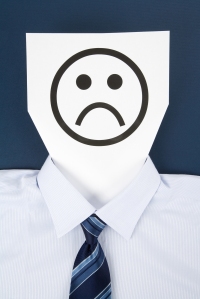
I recently read a tragic article about a young man at New York University who jumped to his death at the school’s library the other day. One of the school’s spokesman said, “It’s a very competitive school that stresses people out. This sort of stuff happens at places like this”. Sort of like a variation of “shit happens,” don’t you think? I think this misses the point.
Some months ago, I wrote a blog article called, “The Death of a Law Student.” A brilliant young man – I’m sure much like the man who killed himself this past week – from Fordham Law School, David Nee, killed himself shortly before graduation. While there may be no concrete answers to these tragedies, I feel that there are lessons to be learned.
First, when reporting these stories, there is usually no mention of the victim’s psychological history. Neither is there in most news accounts of the 30,000 people who kill themselves every year in this country.
That’s okay, because everyone has a right, as does their surviving family, to privacy. Yet, I am sure if we were to know the whole story about these victims, we’d find that the majority of them had been suffering from depression for some time. It wasn’t just “stress” or a “competitive academic environment” or a job loss which caused these deaths. Perhaps, it was the latest in a series of emotional struggles; inner battles which that person fought valiantly but ultimately lost.
Second, I think these suicides underscore just how painful depression really is. Dr. Kay Redfield Jamison (click here to read an interview with her), author of the recent and definitive book, Night Falls Fast, captures this sense of pain:
“Depression paralyzes all the otherwise vital forces that make us human, leaving instead a bleak, despairing, and deadened state. It is barren, fatiguing, and agitated condition: one without hope or capacity. All bearings are lost; all things dark and drained of feeling. The slippage into futility is first gradual, then utter. Thought, which is pervasively affected by depression as mood, is morbid and confused. The body is bone-weary; there is no will; nothing that is not an effort, and nothing that at all seems worth it. Sleep is fragmented, elusive, or all-consuming. Like an unstable gas, an irritable exhaustion seeps into every crevice of thought and action.”
It is so painful, in fact, that some sufferers would prefer death to the ongoing agony of dealing with depression for the rest of their lives. They often conclude that the noonday demon will be with them forever because of their inner battle and many failures to overcome or contain it which have been going on for some time. Seeing no progress or hope on the horizon, people take their lives. They experience a sort of “combat fatigue.” They just can’t get out of their foxholes. It feels like a dead end.
It’s very difficult for suicidal people to think about anything but the pain they’re in. It is hard for them to connect to the very real pain – emotional devastation really – that loved ones would feel were they to take their life. It’s as if they’ve become unmoored from all those who care about them and can only hear the siren of depression’s screaming wail.
I have been encouraged by others who have never experienced depression not to blog about the “grim topic” of suicide. To me, that’s like saying let’s not talk about cigarette smoking and cancer. Untreated depression – like smoking packs of cigarettes everyday- can and often does lead to death.
In a real sense, I don’t give a damn what others think. I want to reach those people out there who are suffering with depression and need someone, for Christ’s sake, to tell them that they understand and they’re not crazy to feel this way – even when it comes to having suicidal thoughts.
People who have suicidal thoughts should seek help right away. Click here for immediate help, a toll free number and additional resources. There were plenty of times during my deepest depressions that I felt like I couldn’t take it anymore. And there was no hiding place; nowhere that I could go to escape the clutches of depression. It covered me like a wet wool jacket as I stumbled through my days. I always reached out for help and it saved me.
I think that people who experience depression are very brave people. They must cope with something very painful. Often, they don’t feel supported. Often, even when they are really supported, they don’t think so because their depression tells them otherwise. It’s the voice of depression giving them the old screw job every which way they turn.
Had we broken arms or legs, it would be so simple. Loved ones would respond – maybe with flowers and chocolates and a puffing up of our favorite pillow – with love and care.
Sometime ago, I was trying to tell my mother and older sister about my depression. They weren’t terribly moved and I got angry. I said, “Maybe, if my head were falling off and I was spouting blood, you would believe me then. You would give me a damn ounce of compassion.” Looking back on it, I really don’t think they were being selfish bastards. I think that they just didn’t know. They didn’t have any frame of reference for what depression is or just how painful it can get.
This really doesn’t make it any easier for the depressed person. They feel misunderstood at a time when they feel broken. They’re reaching out to people beyond their therapist and psychiatrists and hoping to find friendly souls to assuage some of their anguish. “Surely, people will understand me and care about this,” they often think. But others are often frightened and minimize the problem: “Just get the hell over it” they preach from the pulpit. All the while, we stand there, crying inside and feel all alone in a veritable wasteland.
A few times, in the worst of times, I even thought that maybe if I really did kill myself, then others would take my pain seriously. But what a supreme tragedy such an act would be; it doesn’t solve anything and would only leaves a cosmic trail of pain in its wake forever. I am so grateful that I never acted on any of these impulses.
We all want so much to connect at a time when depression has disconnected us. We feel ourselves falling with no parachute. Yesterday, I give a presentation to thirty undergraduate students on the topic of depression. After my talk, I fielded many questions. One young woman asked, “what do you think helped you most in getting over your depression?” First, I said that I hadn’t gotten over it; I would have it – in some form- probably for the rest of my life. I told her that it was contained and manageable, not cured. I also said: “Probably, what helped me the most was time.” My depression and who I am has changed over time. It didn’t kill me. I survived and continue to work at it like a miner digging for coal. I have learned creative and effective ways to cope with it. It doesn’t rule my days – most of the time.
After hearing my answer, she exclaimed, “How brave you are.” I responded: “I really don’t feel brave at all. What I do feel is determined”. I feel determined to fight my depression in all of its manifestations. I feel determined to not let it define me and my life.
It is such determination, over time, that helps us recover from depression. It gives us hope because we can actually witness ourselves not giving into our melancholy. We don’t need to keep being victimized by it. Sure, there will be days when it might get the better of us. But, as the old Zen saying goes, “fall down seven times, get up eight.” Keep getting up.
 The ultimate measure of a person is not where they stand in moments of comfort and convenience, but where they stand at times of challenge and controversy – Dr. Martin Luther King
The ultimate measure of a person is not where they stand in moments of comfort and convenience, but where they stand at times of challenge and controversy – Dr. Martin Luther King

















